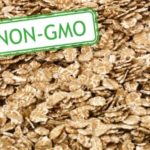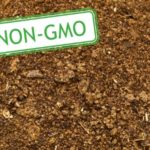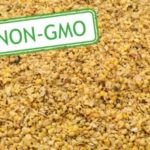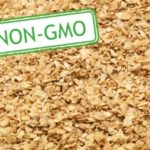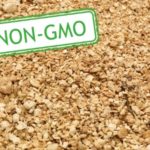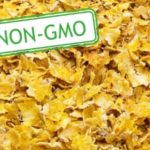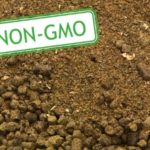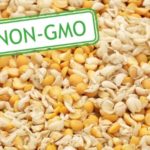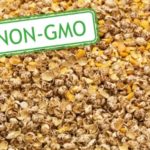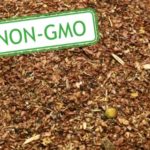FEEDVALID ADVICE: FLEXIBLE OPTIMIZATION FROM 4 PRODUCT CATEGORIES
The steadily growing demand for VLOG-feeds and European non-GMO feeds requires good alternatives to soy and palm. The animal feed supplier can prove its value on the farm, if it has a sufficient wide range of alternative protein and energy rich raw materials.
The call for GMO-free comes from the dairy industry. Retailers in Germany and a growing number of other countries demand GMO-free products. Dutch dairy processors respond by encouraging dairy farmers to produce according to the VLOG-standard. These farmers need VLOG-worthy feeds for this. VLOG (Verband Lebensmittel Ohne Gentechnik) is the German GMO-free certificate.
In addition, initiatives arise that go one step further, by not only requiring GMO-free, but also demand a European origin (EU-28 plus Ukraine). The production chain for sustainable dairy from Royal A-ware for Albert Heijn supermarket is an example of this.
No non-European soy and palm
In particular, the consequences for soy are drastic. A large part of the cultivation takes place in the US and South America, where GMO varieties are common. Although non-European, GMO-free, non-Amazon soy is available, for example from Canada, only European raw materials are permitted in the A-ware program.
European raw materials also include many non-European products that have undergone technical processing in the EU, that goes beyond grinding, breaking and / or cleaning. This rule does not apply to soy and palm products. All non-European soy products and all palm products are forbidden in the A-ware program.
Freedom of choice necessary
The simplest solution is to replace the conventional soy product with a European non-GMO variant. Unfortunately the availability is limited. This makes the raw material relatively expensive. For a competitive price, part of it can be replaced by alternative protein sources like rapeseed or sunflower seed meal. etc. “For a good quality and competitive product, the industry needs a sufficient wide range of suitable raw materials", says nutritionist Marc Boer of FeedValid. “You want to optimize your feed by smart use of differences in protein quality and phosphorus content. In addition to rapeseed and sun, you can also look at other European proteins, such as peas, lupines or linseed. Then you optimize it with bypass proteins and fats."
FeedValid recommends a choice of products in 4 categories for an optimal mix: (see also table):
- European Non-GMO soybean meal
From the point of view of nutritional quality (amino acid pattern), soybean meal is undoubtedly the best protein raw material, but the offer is tight. - Alternative protein sources
A mix of different European protein raw materials can (partially) replace soy, like peas, lupine, linseed, rapeseed and sunflower seeds - Permanent alternative protein sources
Treated raw materials that have a larger proportion of intestinal digestible protein are indispensable for fine-tuning the protein requirement - Bypass full-fat products
Bypass full-fat protein products are a perfect supplement with not only proteins but also energy at the intestine level. That compensates for the loss of hardened palm fats
| Category | Product | Protein | Cost price | Favorable P | Bypass protein | Bypass fat |
|---|---|---|---|---|---|---|
| Soy | ++ | – | ++ | |||
| Alternative proteins | EU Rapeseed meal | + | + | – | ||
|
EU sunflower seed meal |
+ | + | – | |||
| EU peas | + | +/- | + | |||
| EU lupines | + | +/- | + | |||
| EU linseeds | + | – | +/- | |||
| Bypass alternative protein sources | CovaPea | + | + | + | + | |
| CovaLup | + | + | + | + | ||
| CovaRap | + | + | + | – | ||
| Bypass full-fat products | Covasoy FF | + | + | + | ++ | + |
|
Covalin FF |
+ | + | +/- | + | ++ | |
| Covarap FF | + | + | – | ++ | + |
Flexibility and customer oriented
The differences between dairy farms are large and the circumstances change regularly, for example due to variation in the roughage supply. The strength of a customer-oriented animal feed manufacturer lies in the flexibility with which it can respond to the needs of the farmer. As a specialized supplier, FeedValid advises its customers in this regard, supported by a wide range of protein raw materials. The new factory in Poederoijen, which opened in 2018, is perfectly suited for this. This production location is equipped for, among other things, treated proteins, such as lupines and peas, and digestible grains.
FeedValid supplies ingredients for more efficient and sustainable animal nutrition, by enriching raw materials and processing residual flows from the food industry into circular raw materials. We have production and storage locations in the Netherlands, Germany and Belgium and we sell in a large part of Europe. FeedValid is part of the Brokking Holding, a family business with a long history in the agricultural sector and animal nutrition.

